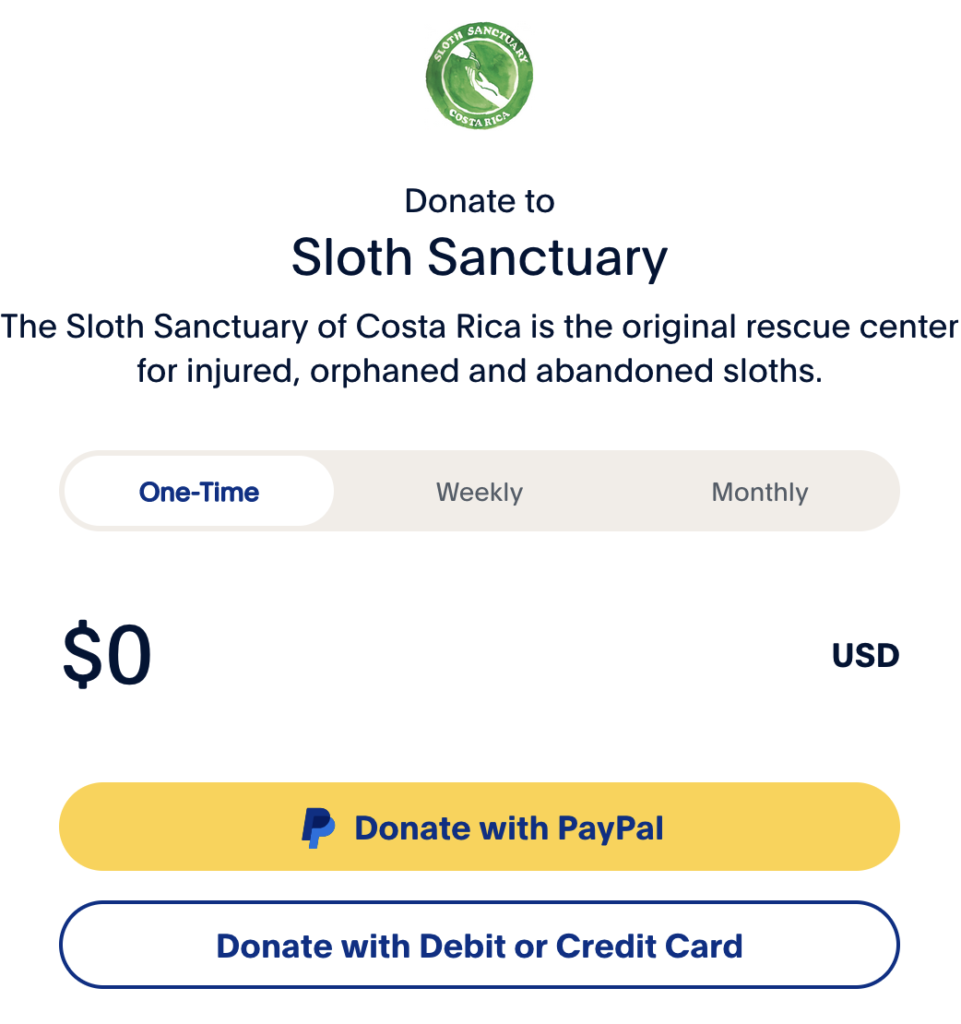Since our first sloth rescue in 1992, we have always aimed to act in the best interest of the sloths of Costa Rica. For over two decades there were no other sloth-only rescue facilities in the world. With so little known about these enigmatic mammals, we basically taught ourselves how to care for them. We expanded when more sloths required rescuing due to development of land for habitation and infrastructure. We have worked closely with the Costa Rican government to ensure we are providing the best possible care within our self-funded means.
Right now the core issue for us is the release of rescued infant sloths. While earlier this year we were working on a protocol for hand-raised sloths, this initiative was recently placed on hold. Our concern: Sloths that are hand-raised due to their mothers’ death or disappearance do not have the life skills to be released into the wild. They do not innately know which trees to forage or what naturally-occurring dangers (such as rivers and hornets’ nests) to avoid. Unlike newly-hatched sea turtles that inherit distinct survival skills, many newborn mammals learn survival skills and self-sufficiency from their mothers. Wild baby sloths spend months with their mothers observing the choices they make. If this cycle is interrupted (most often due to human encroachment in their habitat), there is no other way for the baby to learn what it needs to take care of itself.
Another problematic facet is abandonment due to health deficiencies. When sloth mothers, like other wild animals, observe/sense a deficiency in their offspring many instinctively abandon it—removing it from the gene pool (Darwinism). As rescuers, we try to save the baby from dying, but the conundrum arises when considering it for release: is it safe to reintroduce these “deficient” sloths back into wild sloth populations?
We are currently involved in a massive genetics study with Swansea University (UK) PhD candidate Rebecca Cliffe in collaboration with renowned geneticist Dr. Sofia Consuegra. This study will provide invaluable data on sloth species and the potential of subspecies as well as genetic diversity—their findings are vital for the success of a release program. We are not the only ones dealing with the genetic reintroduction issue. Scientists just recently raised concerns about the alarming ramifications of mixing genetically distinct populations with the release of more than 90 rehabilitated orangutans into the wilds of Borneo.
Sweeping statements (made by others) that almost all rescued infant sloths can be safely released has absolutely no scientific or historical data to support such actions, and releasing them without monitoring would constitute inhumane treatment and potentially wreak havoc within their gene pool.
We recently ordered small, lightweight GPS tracking collars that will provide us essential data about the success rates of rescued sloths released back to the wild. We are looking to collaborate with educational institutions and scientists in Costa Rica or elsewhere who can provide the requisite expertise and background to create and implement a genetically acceptable and humane release program.
If you have input or interest, please email release@SlothSanctuary.com
—May 1, 2016

